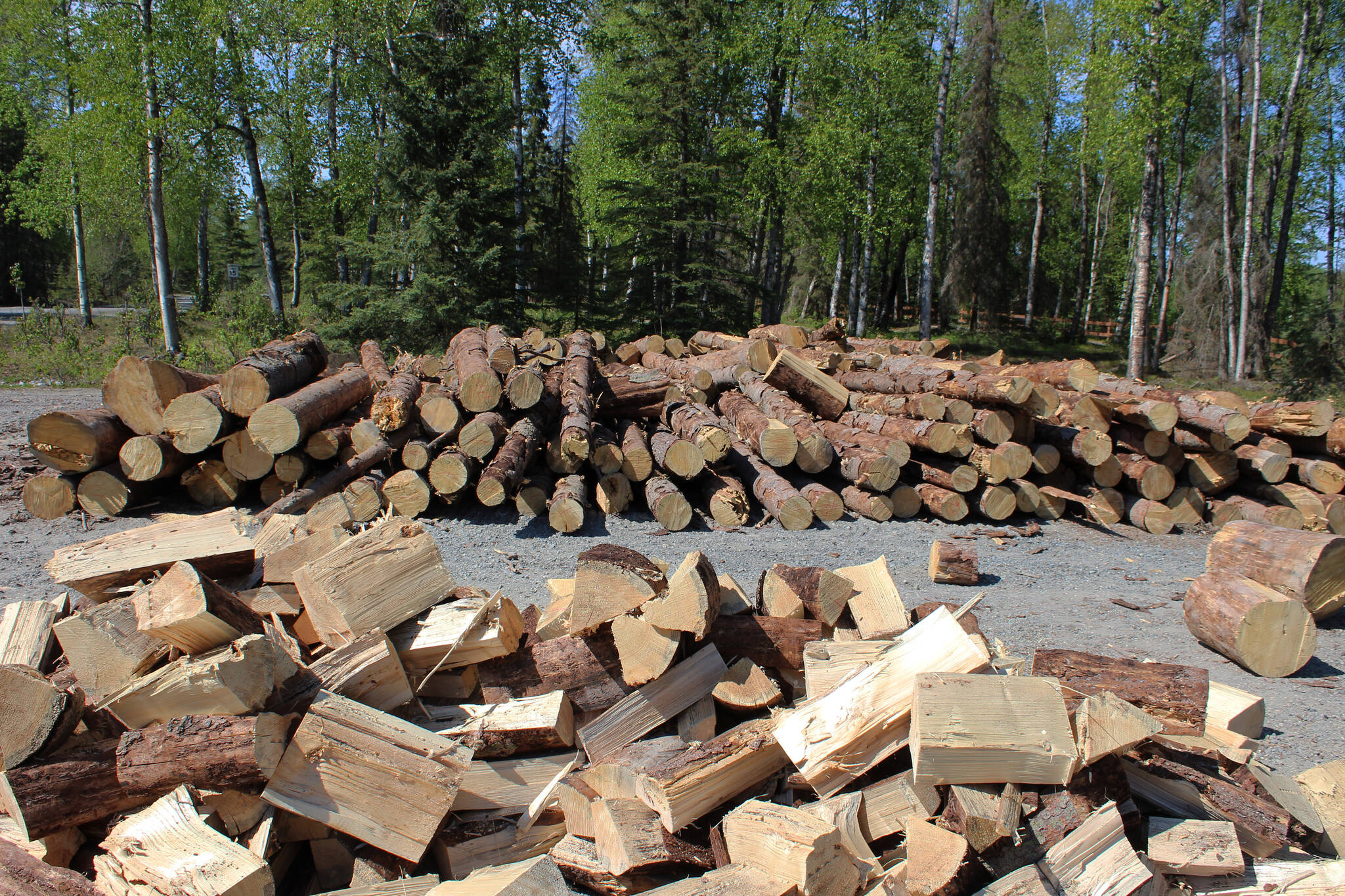Efforts by the City of Soldotna to combat spruce bark beetles just got a $200,000 boost from the State of Alaska. Soldotna City Council members voted Wednesday to accept a state grant that will be used to tackle beetle infestations on multiple large pieces of city property.
Those properties include Centennial Park & Campground, Swiftwater Campground, the Soldotna Airport and property on West Redoubt, per an Aug. 5 memo from Soldotna Director of Economic Development John Czarnezki to council members.
The $200,000 accepted by council members Wednesday is in addition to money the city received last year to tackle trees and comes from the Alaska Division of Forestry. Tree removal work made possible by the money council members accepted Wednesday is expected to begin this year and continue into spring of 2023.
The City of Soldotna received just over $165,000 last year, also for hazard tree removal. That money was awarded through Alaska’s Hazard Mitigation Grant Program and was used by the city for “limited” tree removal at Centennial, Swiftwater and Memorial parks, as well as at the Aspen Street Dog Park. That work targeted trees that posed an “immediate risk.”
“It was not comprehensive in scope,” Czarnezki wrote of the work already completed. “Many dead and dying trees remain, especially at Centennial and Swiftwater parks.”
The city earlier this year closed both Centennial and Swiftwater campgrounds for most of May while mitigation work was being done. City council members greenlighted accelerated mitigation work to ensure Soldotna could safely reopen the areas ahead of the summer tourism season.
Soldotna City Manager Stephanie Queen said during Wednesday’s council meeting that while the grant will not solve the city’s spruce bark beetle problem, it will allow the city to “chip away at it.” All work contracted out by the city is in addition to in-house tree removal work, Queen said.
“This will allow us to continue reducing and mitigating the fire risk hazard from those dead trees,” Queen said of the grant. “It’s probably not going to be enough to deal with the problem, but we will continue to chip away at it in terms of moving it from highest priority down.
When asked how much work is still needed to solve the city’s outbreak, Queen said to take any city estimate, and then triple it.
“I don’t mean to be glib, but I mean, we’ll throw you a number out, and then we’ll triple it, and maybe that’s also not yet a reasonable estimate,” Queen said. “We thought we had a good handle on how many trees were needed in this first phase, but we were off by a factor of two.”
The grant accepted by Soldotna council members Wednesday is just one of the many grants distributed throughout the peninsula to help combat the current spruce bark beetle outbreak.
The City of Kenai accepted $150,000 in grant funds, also from the Alaska Division of Forestry, to set up a slash disposal site just north of the city, off the Kenai Spur Highway. Per the grant awarded to the city, Kenai was approved for $50,000 per year for three years to reimburse expenses incurred to complete the project.
That disposal site received more than 100 visits within two weeks of opening, representing about 16 acres of land treated. The site did not accept commercial slash and officially closed on Sept. 11, Kenai Parks and Recreation Director Brad Walker said Thursday. City officials have previously said that the site would close earlier than planned if the pile reached 1.5 acres in size.
The Kenai Peninsula Borough also this summer decided to use $300,000 in general funds to set up temporary slash disposal sites in multiple communities throughout the borough. Public slash disposal sites are identified as a “high-priority mitigation strategy” for fire hazards in the borough’s Kenai Peninsula Community Wildfire Protection Plan.
As of 2020, more than 150,000 acres of forest had been impacted by spruce bark beetle infection on the Kenai Peninsula, including about 21,000 acres of forested land between Cooper Landing, Kenai and Soldotna. The dead and dying white and Lutz spruce trees affected by the beetles are hazardous; they’re prone to falling over and are especially susceptible to fires.
More information about spruce bark beetles can be found at alaskasprucebeetle.org.
Reach reporter Ashlyn O’Hara at ashlyn.ohara@peninsulaclarion.com.

